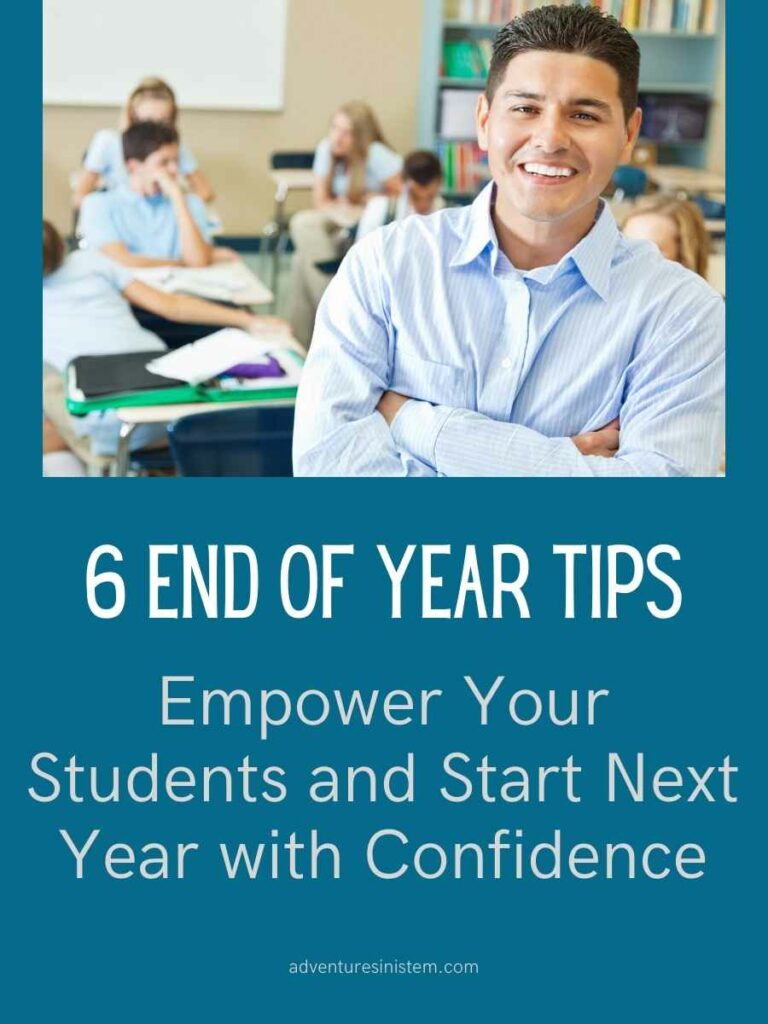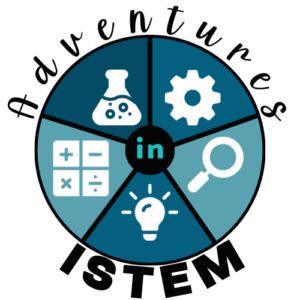As you get ready to close out the school year, there are some simple steps that you can do that will make the beginning of the next school year run more smoothly and leave you feeling calm and confident. Below are some simple tips for you that will help you send your students off feeling empowered and help you begin the school year with confidence.
End of the Year Tips For Teachers

Teacher Tip #1: Reflection
This is the perfect time to reflect on how the year went. I usually like to do a self-reflection at the end of every quarter and then again at the end of the school year. This is the time to write down what went well, what didn’t go as planned, and what would you do differently. If you used a strategy towards the end of the school year that was beneficial, would it be more valuable to start it at the beginning of the school year? Would you keep the order you taught your topics or rearrange them? Would you keep the same activities or try a new strategy?
If you have a planner or calendar, this would be the perfect location to add your reflection notes. I always look at my previous year’s calendar when planning my new year and having the notes right there is very helpful.
Teacher Tip #2: Organize
Now is the time to organize all of your supplies for the next school year. Have your students help you with this task. If you use paper and have backline copies of your handouts, put them in folders by topic or quarter. If you do lab stations, get the materials for the stations organized and grouped using boxes, ziplock bags, envelopes, or folders. If you have student supply boxes check them to make sure the markers still work, the glue bottles have enough glue and are still working, note what supplies need to be replaced. If you put things away in cupboards and drawers you will want to mark them or create a map so you can easily locate everything next year. Doing the organizing now will save you lots of time at the beginning of the year so you can focus on other things.
Teacher Tip #3: Ask Students for Feedback
We all know the value of providing feedback to our students. It helps them understand if they are doing well and meeting the goal or if they are struggling and need extra support. Feedback is also important for teachers. I’m not talking about teacher evaluations that are done by someone who is rarely in your classroom and only gets a glimpse at what you actually do. I’m talking about getting feedback from people who are with you day in and day out, who know you, you are the best qualified to actually let you know how you are doing. I’m talking about asking your own students for feedback.
Asking your students to give their honest opinion on what is working for them, what is not working for them, what they enjoy about your class, and what they would modify is a great way to empower your students and make them feel like they matter, but it is also a great way for you to see how effective the strategies you are using are. When asking for feedback it is important that the students feel that it is anonymous and that they won’t get penalized for being truthful. Ask them what they like and don’t like but also why?
When looking over the results you will want to look for patterns. What are the majority of your students saying about the activities and strategies you use. You will of course have those students that don’t like anything you do and say that you are a horrible teacher. There is always one. When I read those, in my mind I say, thank you for your opinion and then move on. Now, if many students say you speak too fast, that would be a pattern to pay attention to and perhaps work on speaking slower. That has been a comment I have received in the past and I’m working on it. Now there will be things that they don’t like but you need to do anyway. Students are not fans of writing CER explanations and yet those are not going away. So my job is to help them see the importance and to make them perhaps a little less painful when learning how to write a CER in the beginning. Below is a student feedback survey that you can modify and use in your own classroom.
End of the Year Tips for Students
Student Tips #1: Reflection
Just like you need to reflect on the school year, so do the students. Have them reflect on their journey not only as a student but as a person. How have they changed throughout the year? Who were they when they started and who are they now? What are some lessons they have learned? What can they do now that they couldn’t do at the beginning? It is often difficult for students to see the massive leaps they have made. Providing time for them to reflect on things helps them see the changes in themselves.
Student Tips #2: Visualization and Goal Setting
Take your students on a visualization exercise that puts them in the future. If they are in middle school or high school have them visualize themselves one year out of high school or five years if they are seniors. If they are in elementary school have them visualize their first year in high school. What type of person are they? What are they doing? What type of life are they living? How do they want others to see them and treat them?
Then have them set goals for themselves to get there. What would they need to do to make that visualization a reality? What action steps will they need to take in the next few months, or years, to become that person and live that life?
Having them first visualize the life they want to have will help them see the gap between what they want to be and where they are now. For some, that realization is enough for them to start making some major changes in their lives.
Student Tip #3: Processing Time
At the end of the year, students are filled with many emotions. This is especially true if they will be moving on to another school or moving out of school entirely. They need a safe place to process their emotions and feelings. Providing space for them to share how they are feeling about the school year ending and where they will be in the following school year is important. Many might be nervous, anxious, and afraid of what the next year will look like while others might be excited. All feelings should be recognized as being normal. You could have them write on a piece of paper, write on a pear deck, share with a partner or small group, or any other way that you feel would be a safe way for them to process and share their thoughts and feelings.





